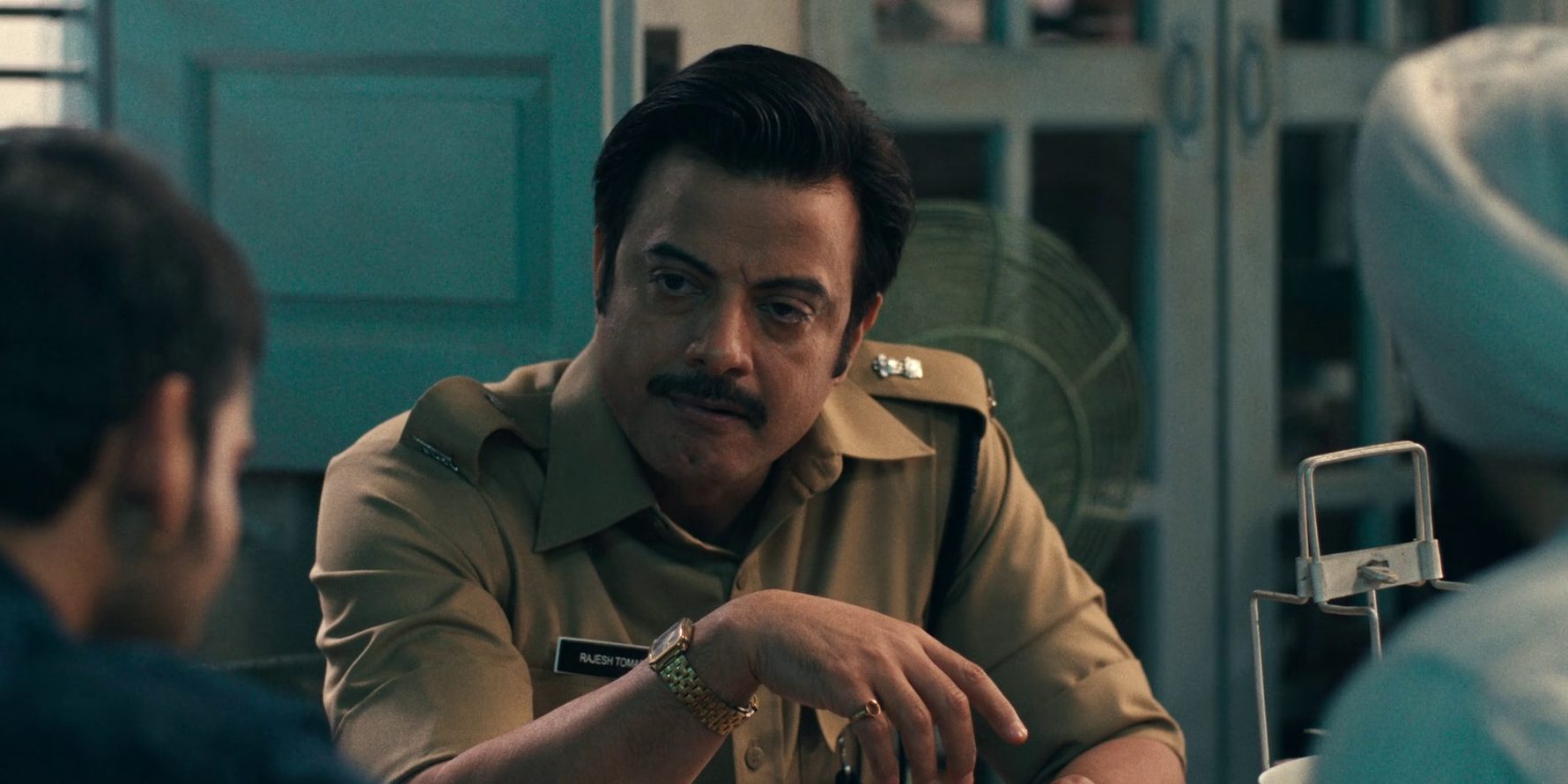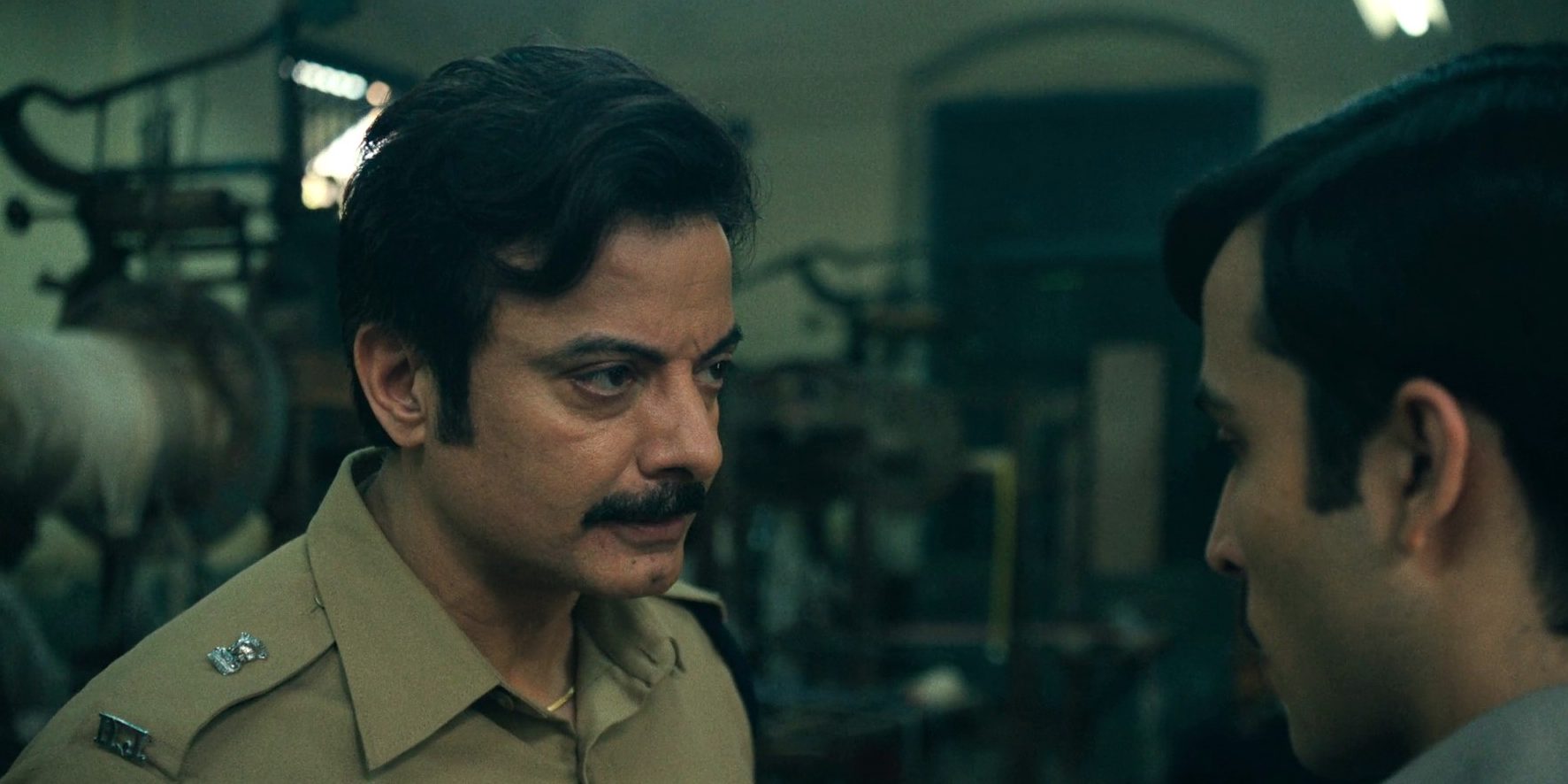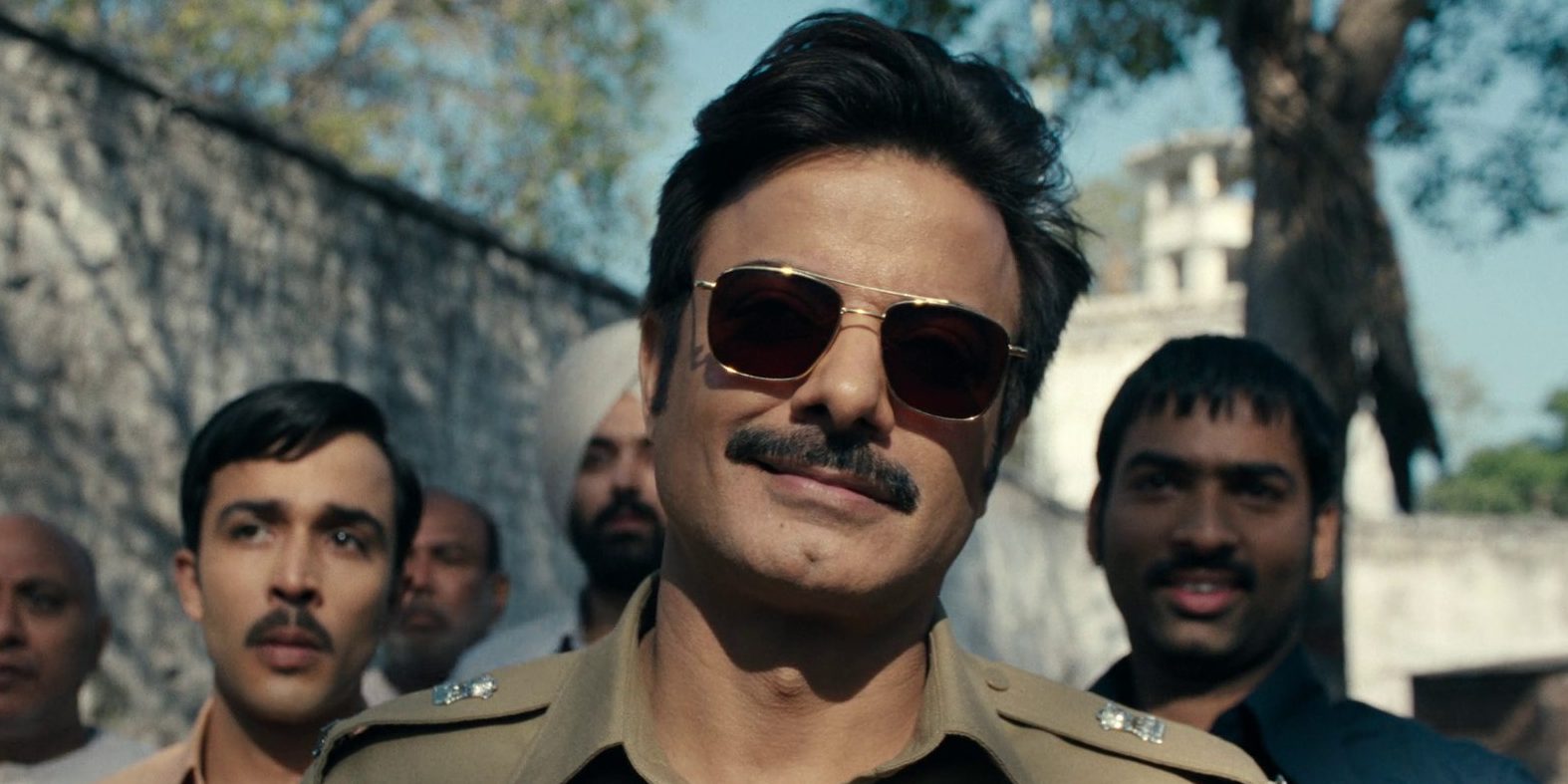In Netflix’s Indian series ‘Black Warrant,’ Rajesh Tomar is a deputy superintendent (DSP) at Tihar Jail and the direct supervisor of the protagonist, Sunil Kumar Gupta. The officer teaches the latter the nuances of the prison’s operation, which is influenced by the interests of three gangs and the corruption that prevails within the walls of the establishment. The high-ranking official breaks Sunil’s understanding of how a jail is run, which motivates the latter to implement reformation measures to transform the reputation of his workplace. Even though the prison drama is based on a true story and, to be specific, an actual jailer, the origin of Tomar is highly intricate! SPOILERS AHEAD.
DSP Rajesh Tomar is Not Based on a Particular Jailer
DSP Rajesh Tomar is a fictional jailer conceived by Vikramaditya Motwane and Satyanshu Singh, the creators of ‘Black Warrant.’ First of all, in reality, Sunil Kumar Gupta did have superiors who resemble the character, starting with O.P. Sharma. In a pivotal scene in the period drama, the home minister of India visits Tihar Jail to inspect the conditions within the prison without any notice. The protagonist handles the powerful figure while waiting for his boss, Tomar. The incident occurred in real life, as Sunil had to deal with the unexpected inspection of the home minister, Giani Zail Singh, in the early 1980s in the absence of his boss.

Like his on-screen counterpart, Sunil waited for the deputy superintendent OP Sharma to show up and take the matter off his hands. Furthermore, like the fictional character, the actual DSP didn’t really like the protagonist, as per the latter’s book ‘Black Warrant: Confessions of a Tihar Jailer.’ However, it does not mean that Tomar is based on Sharma. In the show, following the minister’s visit, Sunil gets suspended for the availability of alcohol within the prison. In other words, he becomes a scapegoat who saves Tomar and other high-ranking officials from severe consequences. That was not the case in reality. After Zail Singh’s visit, along with Sunil, Sharma was also suspended.
Interestingly, Sunil was recalled to work after a month and a half, while Sharma’s suspension lasted “many years,” which contradicts Tomar’s story arc in the series. In addition, in the aforementioned source text of the prison drama, the DSP is barely mentioned, while the character remains a part of the protagonist’s life for several years. Considering these factors, we believe that Tomar does not have an exact counterpart in reality.
DSP Rajesh Tomar Represents the Corrupt Superiors of Sunil Kumar Gupta
During his 35-year-long tenure at Tihar Jail, Sunil Kumar Gupta came across several corrupt officials who showed him how the prison was being run at the time. DSP Rajesh Tomar can be seen as a representative of these officers. In the period drama, he openly accepts bribery, aids the illegal endeavors of the gang leaders, and immerses himself in corruption. Similarly, when Sunil joined Tihar, it didn’t take him long to figure out that corruption, in general, is a fundamental aspect of his new workplace.

“We were so low in the pecking order that there was a good chance we would even be bullied by the inmates, that is, if we survived our boss’s tyranny,” Sunil wrote in ‘Black Warrant: Confessions of a Tihar Jailer.’ “The choice was simple. Either you gave into the demands that rich, powerful inmates made of you and became their corrupt crony, or you risked being beaten up and constantly threatened,” he added. The unnamed bosses and corrupt cronies he mentioned in these lines are represented in the prison drama through Tomar, who exerts his authority over the ASP throughout the show’s seven episodes.
Sunil’s memoir contains detailed descriptions of his superiors favoring influential or wealthy inmates without mentioning their names, reminding us of how Tomar treats Sunny Tyagi or Anil Rana. Through this character, the show offers an understanding of the challenges Sunil faced from his bosses while he was in Tihar.
Read More: Black Warrant Ending, Explained: Why Were All the Prison Guards Asleep?


You must be logged in to post a comment.